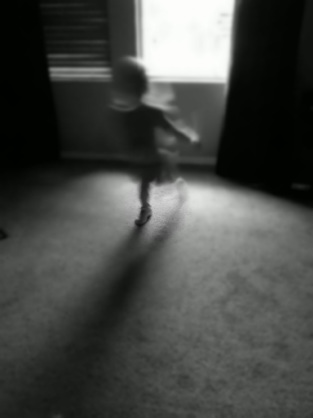|
Hello out there! I am a frequent contributor to KSL, Family Focus and other news organizations with a focus on family and mental health. What follows is an article I wrote which was originally published by KSL, WorldNow, Gatehouse Media Group and Fox NY on February 11, 2014. Enjoy!
Are you the type of parent who prefers rough and tumble play with your child or working together on artwork? Something in between? Regardless of what style of play you prefer, folding in some play therapy techniques can offer long-lasting benefits. Play therapists relying on the evidenced-based practice of child-directed play use letting the child lead, the sportscaster technique, limiting “teaching moments” and the use of labeled praise to improve relationships. Dr. Gary Landreth and Dr. Sheila Eyberg pioneered child-directed play therapy. It's use focuses on improving the parent-child relationship as a means to improve the child's behavior. These techniques are typically used with children ages 2-7. Researchers have long known that a good parent-child relationship (sometimes called a secure attachment) has lasting effects. Children in preschool and elementary school who have a history of secure attachment continually exceed their peers in regards to competency, empathy, feelings identification, social skills and self-confidence. Therefore, child-directed play seeks to strengthen this relationship. But these techniques don't need to be reserved for play therapy only. What parent isn't interested in instilling more self-confidence or empathy in their child. Let the child lead Child-directed play is most effective when used with games that involve imagination, or at least those without rules. For example, board games aren't amenable to child-directed play, but any type of artwork, role-playing games, blocks, games using figurines (animals, dolls) work perfect. If you see your child is engaged in this type of play, join them, but let them be the director. The pace of a child's play can be slower than adults are used to, so be patient. Sit back and use behavioral descriptions (explained below) as a way to participate. If they want you to join them, ask “which animal should I be?” Resist the urge to make suggestions or impact the direction of play. This is a role reversal for parents and children, and when it's in a safe, contained environment, let your child be the guide. Act as a sportscaster One way to let children know what they are doing is important to you is to use the sportscaster technique. This means using behavioral descriptions. Narrate your child's play as it's happening. Say “you choose to use the pink crayon.” Or “I noticed you are really focused on making a circle.” This communicates to children that what they are doing matters and that you are present with them. As adults this would bother us, and we'd question why someone was narrating our every move, but you'll be surprised how much your child eats it up. Abandon your instinct to “teach” Rather than jumping in during blocks and asking questions such as “what color is this block?” or “how many red blocks do you see,” focus on observing behavior and describing it. This is easier said than done. Many parents use every opportunity to teach their children. During this time, the focus is on letting the child direct the interactions. Use labeled praise We are quick to praise our children, but try using labeled praise, meaning specific, descriptive praise. For example, “I like the way you didn't give up when you were frustrated” rather than “good work.” When joining your child in play, look for opportunities to point out good decisions they've made, creative problem solving or examples of pro-social choices. By using labeled praise, children will gain a greater understanding of what your expectations are. Additionally, when you are closely observing your child, it's easier to pick out what you are impressed with and give your child feedback rather than when you are distracted by your to-do list. Play is the language children use to communicate their feelings. By using some of these techniques with your child, you may be privy to subtleties that are easily overlooked. Channel your inner child and enjoy. Whitney Barrell, LCSW holds a Masters Degree in Social Work and owns a private practice primarily serving children. She has extensive training and experience in working with young children. Original PostCopyright 2013 Deseret Digital Media, Inc.
0 Comments
Leave a Reply. |
Archives
March 2024
Categories
All
|

 RSS Feed
RSS Feed